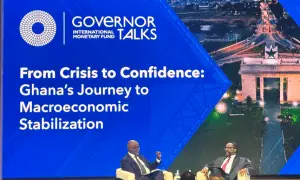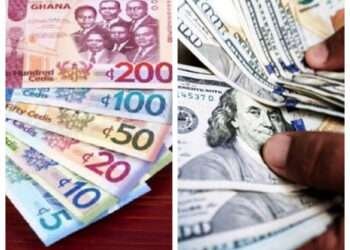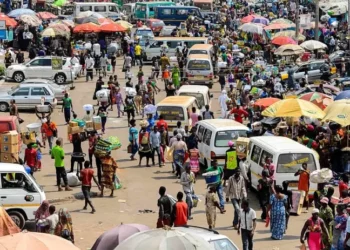Dennis Nsafoah, Assistant Professor of Economics at Niagara University in Toronto, has stated that some of the programs rolled out by the government have eliminated the country’s fiscal space.
According to him, government should have anticipated the difficulties that may come along with its programs in the long run, even though their objectives were to benefit all Ghanaians.
“The government’s strategy was to push the economy to reach certain objectives, which were to benefit the population in the long run, but they could not have anticipated the successive economic shocks that were to come.
“These programmes have eliminated Ghana’s fiscal space, and the country was thus severely hit by the economic downturn resulting from the Covid-19 pandemic”.
Prof. Nsafoah
The Assistant professor explained that even though countries are subject to similar economic shocks, they are experiencing different effects because of the pre-existing condition of the state of the economy before the shock hit.
In the case of Ghana, the country’s fiscal position was already a challenge before the Covid-19 crisis hit, with a debt-to-GDP ratio of 64% in 2019, the reason being that, at the time, the government entered a phase of substantial public spending.
Two major fiscal policy measures have weighed on the government’s budget deficit: the clean-up of the banking sector, which saw a reduction in the number of banks, and the abolition of fees for senior high school, meaning that costs for education were assumed by the government for students between 15 and 18.
According to the IMF, Ghana’s public debt increased from 65% to 80% of GDP during the global pandemic.
“The government’s fiscal efforts to preserve debt sustainability were not seen as sufficient by investors, leading to credit rating downgrades, non-resident investors exit from the domestic bond market and loss of access to international capital markets”.
IMF
Depreciation of the local currency
In addition, Ghana’s currency, the Cedi, has lost 47.1% against the dollar since the beginning of the year, making it the worst-performing currency in Africa after Zimbabwe’s dollar, and contributing to the inflation of imported products.
In response to an ever-increasing budget deficit, the Central Bank of Ghana has sold foreign assets to support the economy.
As a consequence, Ghana’s net foreign assets went from $3bn in May 2021 to a negative value of $126m in May 2022, according to the Bank of Ghana’s last monthly monetary survey.
Traditionally, Ghana’s balance of payments has experienced a current account deficit. In recent years, its financial and capital account has remained relatively high as a result of foreign portfolio investment and foreign direct investment, mainly in the country’s cocoa, gold, and petroleum industries.
However, about three months ago, Ghana’s capital account figures went to negative as a result of the sales of all of its international reserves by the Bank of Ghana.
“This is not sustainable. The Bank of Ghana cannot replicate this model for the next half of 2022, or it will run out of international reserves, which will scare a lot of investors. It is time for the fiscal government, namely the Ministry of Finance, to find a way to go on the international market and borrow on its own, instead of relying on the Bank of Ghana”.
Prof. Nsafoah
Downgrade by credit rating agencies
But because Ghana has missed its budget target several times in recent years, credit-rating agencies have constantly downgraded the country, making it difficult to attract investors.
On August 10, Fitch Ratings downgraded Ghana to CCC from B-, right after S&P lowered Ghana’s local and foreign currency credit ratings to CCC+/C from B-/B.
In response, the government was “disappointed by S&P’s decision to downgrade Ghana despite the bold policies implemented in 2022 to address macro fiscal challenges and debt sustainability”, the Finance Ministry stated.
In this context, the government requested a new bail-out from the IMF, its 17th, only three years after it completed its previous IMF program. Last month, an IMF staff mission visited Accra to kick-start discussions on how best to address Ghana’s challenges.
“In 2021, given the country’s fiscal position back then, it was obvious that nobody on the international market was going to lend to Ghana. At this point, the government should have gone to the IMF, but it did not. I believe it would have solved a lot of problems we are seeing right now.
“If Ghana can get $3bn from the IMF, it will be extremely helpful. It will help on most of the financial issues, but also give them some level of credibility in the eyes of investors”.
Prof. Nsafoah
Although Ghana is at an early stage in the discussions for an IMF program, the deal is likely to be in the form of an Extended Credit Facility for low-income countries, the Fund’s main tool for medium-term support for countries facing similar problems as Ghana.
READ ALSO: Ghana Is The Only Country In Africa That Has Implemented Mobile Money Interoperability- Bawumia























